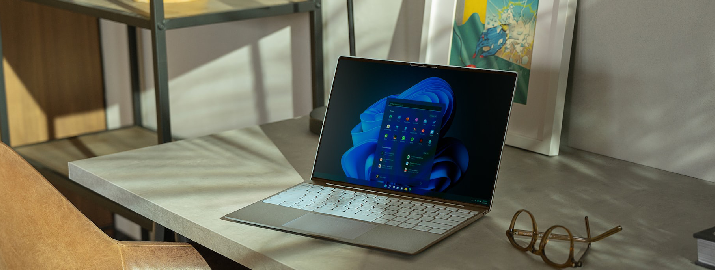
Hiring Remote: Steps and Tips
Table of Contents
If you’ve entered the remote interview, this often means that the recruitment process will also proceed remotely. So, do you have experience in this matter? If not, you might have a little trouble. You need to be sure of what to expect for any job type. How are the applications evaluated, how is the interview is done, and how to prepare for this interview? All of these questions are very important.
If you’re tired of commission every day and you’re looking for a remote job, it’ll be useful to get information about this process in advance. Although most of the time, especially the interview phase is similar to face-to-face interviews, there are many differences.
For this reason, we’ll try to give you information about hiring remotely in this article. Without further ado, let’s get started.
Stages of Remote Interviews
Why do you want to hire someone? Always think carefully about this question before you move on to the interview process. In this way, you can make a more detailed examination of the person you’ll hire. You can be more specific about exactly what position you want the recruiter to take.
After that, you come to the stage of the interview. Here:
1
Explain the Position Well
The first stage of the remote recruitment process is a good explanation of the job position. You need to explain well questions such as what the position is about, and what skills the person who’ll work in this position needs. At this point, it’s important to explain the missions of the company thoroughly. In this way, you’ll eliminate candidates who’ll not fit into this company in the first place.
The job description part is very important. It’s important to pay attention to the terms. For example, you don’t need to stay away from professionalism to be funny. Try to explain in simple words as possible.
2
Decide on the Interview Method
If you want to interview truly talented candidates, you need to interview as many people as possible. For this reason, we recommend that you share the ad in as many places as possible. So, first, decide which platforms you’re going to post on, and make sure you’re posting in as many places as possible.
And, choosing a method… That’s important. For example, are you going to offer a higher salary to quit their job and move on to you? Or, do you have no such intention and are considering hiring young candidates who don’t currently have a job? Decide on these methods. Think about what you can offer the candidate. Think about the method you need to follow to recruit truly talented people.
3
Review Required Information
No candidate adds his/her CV when applying for nothing. They prepare their CVs carefully and try to introduce themselves well. Therefore, be sure to thoroughly review the CVs of the candidate you interview. It would be good to ask them questions about these CVs. Try to learn the details that are on your mind.
In addition to the CVs, you can also look at other documents that may be of use to you. Besides this document, it can a small job. Candidates can also bring references if requested for an interview. If you like the CV but want to be a little more confident, you can ask the candidate for a reference. In this way, for example, you can have a chance to talk to his/her former boss, which will be good for learning the working principle of the candidate. Besides, if you wish, you can give a small project to the candidate. You can have the chance to test a lot of things by giving a small task and asking them to do it. For example, will s/he deliver on time? Or, does s/he have the necessary skills to do the job? Thanks to this project, you can find answers to questions such as.
4
During a Remote Interview
You may feel strange, but this is perfectly normal. After all, you’re looking at the camera with the person you’re talking and s/he isn’t with you. But, it also has advantages for you. Be sure that you’re less likely to make mistakes during a remote call because you’ll be more prepared.
First of all, for the conversation to be healthier, the cameras of both parties need to be open. Otherwise, the talking party will feel as if they’re only talking to the computer. It’s very important that the cameras are on to establish a bond with the candidate and establish a more comfortable dialogue. In fact, instead of going directly to the interview to feel more comfortable, you can start with a casual conversation first. It could be a chat about the weather. There are various platforms for remote interviews (such as Zoom, and Skype…). You need to prepare according to which platform you’re doing. For example, if you need to screen share, know how to do it beforehand.
5
Hiring
Yes! You survived all these stages and found the candidate you wanted. Now, it’s time to prepare the candidate for the work. If you assist the candidate in the onboarding process, it means they’ll stay with the company much longer and work more efficiently. So, what can you do?
If you haven’t done anything about it yet, it’s time to prepare. If you draft a recruitment process, you can use it for all future candidates. Be sure to explain the tools to be used well to the incoming person. There’s a good chance they’ll already know since you’re hiring, but go over it anyway. Make sure you reflect the company’s culture well in the candidate. Every company has its own culture and it’s very important for the continuation of these companies. Therefore, you can organize a social event. For example, you can organize a dinner party as a whole company.

Tips for Candidates
- Prepare your CV well. It’s important to indicate your skills accordingly with the ad. One of the most important things when applying for a remote ad is whether you have experience in working fully remote. Therefore, if you’ve worked remotely before, make sure to indicate this.
- Although you’ll be in front of the camera, try to dress professionally. Look stylish on camera. Experiment with your camera before the meeting and try to make a good impression.
- You’ll receive many questions about remote working. Prepare for these. Show that you’re suitable for remote work. Try to prove yourself in matters such as time management, taking initiative, responsibility, etc. If you’re given a project it’ll be good to show yourself. Pay close attention to this project.
- The job interview isn’t over after the interview. Keep making a good impression. You can send a thank you card to the company for this. You can state that you’re very pleased and grateful for the attention they show you.
Why is Hiring Remote Beneficial?
Especially after the pandemic process, when everyone was closed to their homes, remote work has increased a lot. Since this was a foreign situation at first, it was a challenging process for both companies and employees. Companies that could keep up with these strategies survived… Many online tools were discovered for working online and companies and their employees had to learn them.
So, what happened next? Many companies have realized that this is a much better method. Thanks to remote working, many companies realized that they could become international companies, and they did. Currently, many companies are interviewing and recruiting candidates from all over the world, thanks to remote working.
That is, we no longer have to be physically close to the companies we work for. We don’t have to get out of bed early in the morning every day and come home in the evening. This is a win-win situation for both employees and employers. For example, when employers hire someone from abroad, they no longer have to grapple with accommodation or visa issues. Job seekers can also apply for jobs anywhere in the world.
Many people who work remotely state that they’ve established a much better work-life balance since this period. This increases the productivity of the employees. They can be much more creative. We said, good for employers and employees alike! Many studies indicate that remote work has a direct impact on mental health and that those who work remotely are happier people.
Strategies to Handle Remote Hiring
Hiring remotely is a difficult process. We’re aware of this and therefore we want to help you. We don’t want you to go through all the interview processes and hire a candidate who doesn’t feel comfortable with you in the end. Therefore, we’ll highlight the three most important strategies.
Highlighting Company Culture
We’ve mentioned before that company cultures are very important. For this reason, your new employees need to adapt to this culture. The good agreement of the team members with each other is one of the main factors that determine the atmosphere of peace in the company. For this reason, before hiring a new employee, it’s important to make sure that they can adapt to your culture.
For this, you can ask the employee various questions. For example:
- What’s our company’s vision?
- What do you think you can add to the company?
- Do you have ideas for company growth?
- What do you expect from the work environment?
You can ask such questions in the interview. These are very important questions to get to know the candidate you’re facing.
Strong Communication Skills
Contrary to popular belief, it’s much more important to have communication skills when working remotely because communication begins to take a much more important place to keep a team working remotely together. Therefore, it’s very important that you see strong communication skills in the candidate.
You can understand this with a few movements even in front of the camera. For example, if s/he can’t look directly at your face on the camera, if his/her eyes are constantly shifting to other places, this may mean that you’re interviewing a person who has a lack of self-confidence. This doesn’t mean eliminating these candidates, just knowing their character can indicate which team they would be a better fit for.
Be Clear About Goals
Working remotely has many benefits. Work-life balance comes first. However, it’s not easy to work sitting in front of the computer all day, probably without leaving the house. Therefore, it’s important to give clear answers to the employee about what you expect in the interview.
For example, you can learn the methods. How efficiently does your candidate normally work? While some people work more efficiently during certain working hours, others get better results with flexible hours. It’ll be good to get this information about the employee to learn about mutual expectations. After you state your mission, it doesn’t hurt to learn about the employees as well. In this way, you can get the best results with good communication.
Conclusion
In this article, we’ve tried to give you information and tips on remote hiring for both workers and employers. As you can see, this is a challenging process for both parties and needs to be well-prepared.
We hope these tips are helpful to you.
FAQ
What is the remote hiring process?
The remote hiring process typically involves the following steps:
- Application and resume review
- Phone or video interview
- Skills assessment or test
- Reference check
- Job offer and background check
How does the remote hiring process differ from in-person hiring?
The main difference in the remote hiring process is that interviews and assessments are conducted remotely, rather than in-person.
Are there any special considerations for remote hiring?
Yes, when hiring remotely it's important to ensure that the candidate has a reliable internet connection, necessary equipment and a suitable place to work.
What are some best practices for conducting remote interviews?
Some best practices for conducting remote interviews include using video conferencing software, clearly communicating the agenda and format of the interview, and allowing ample time for the candidate to ask questions.
How can I ensure effective communication with remote employees?
To ensure effective communication with remote employees, it's important to establish clear guidelines and expectations, use communication tools such as email, instant messaging and video conferencing, and schedule regular check-ins.
Are there any opportunities for remote work?
Somw does offer remote work opportunities for some positions.

